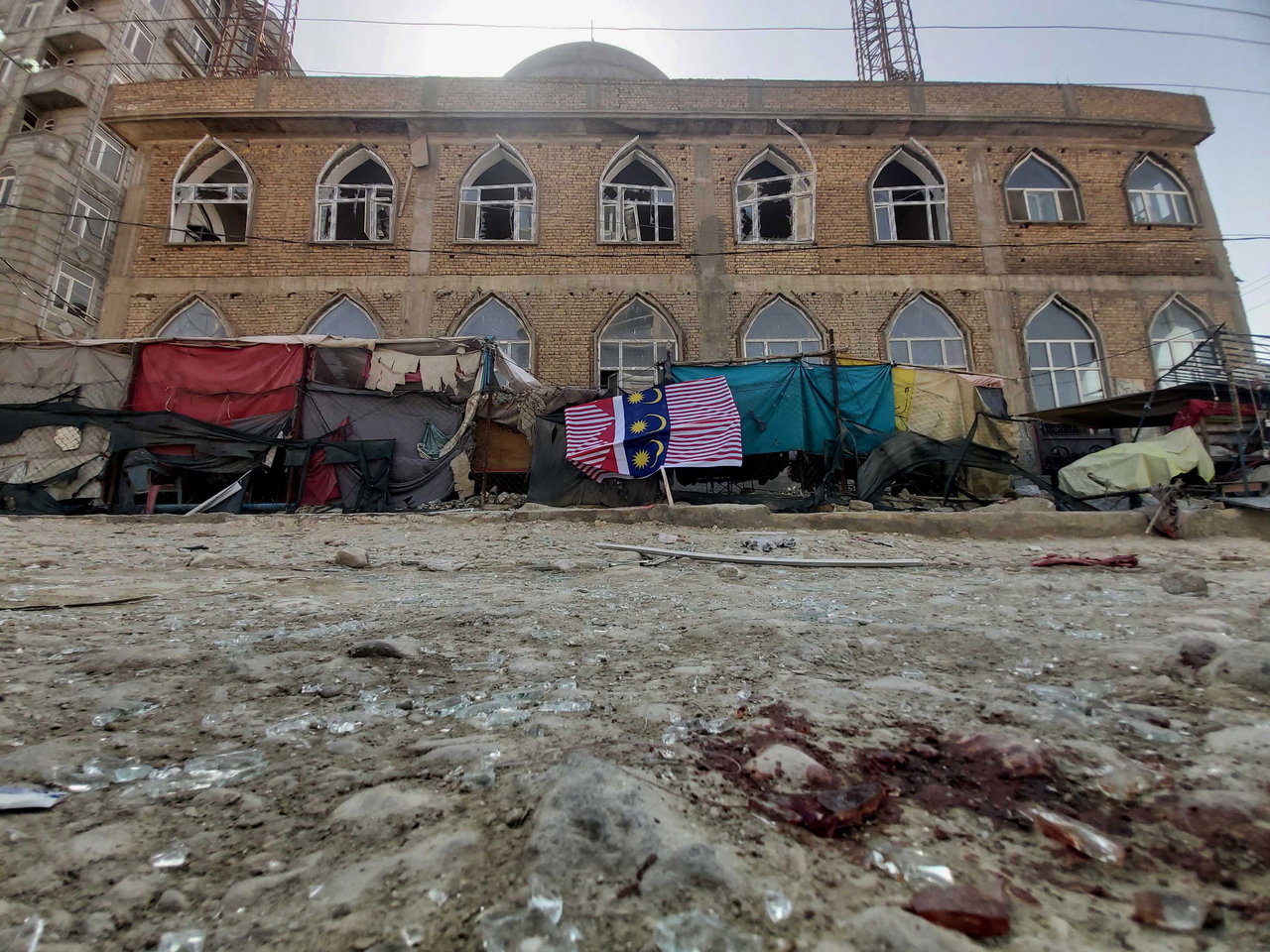Mosque explosion kills 33 as deadly week in Afghanistan continues
Sign up now: Get insights on Asia's fast-moving developments

Aftermath of a blast at a Shi'ite Muslims Mosque in Mazar-e-Sharif, Afghanistan, on April 21, 2022.
PHOTO: EPA-EFE
KABUL (NYTIMES) - An explosion at a Sufi mosque in northern Afghanistan on Friday (April 22) killed more than 30 people and wounded dozens of others, a Taliban official said, continuing a bloody week in Afghanistan that has been reminiscent of the past 20 years of war.
The blast, at the Khanaqa-e-Malawi Sikandar mosque in Kunduz province near the country's border with Tajikistan, was the fourth major attack in Afghanistan in four days and stoked fears that the country may be heading into a violent spring when warmer weather has historically allowed militants to carry out offensives.
No group immediately claimed responsibility. Details of the attack remained unclear on Friday afternoon, but videos showed a concrete wall reduced to rubble, shattered glass littering the floor and carpets covered in blood.
Taliban's chief spokesman Zabihullah Mujahid said 33 people had been killed, children among them, and 43 wounded. Local residents feared that the death toll would climb.
"The situation was really terrible, and dead bodies were everywhere," said Mr Hakim, who lives nearby and rushed to the mosque after hearing an explosion.
He asked to be identified by first name only for fear of retribution.
Friday's blast added to a particularly bloody week in Afghanistan, where these kinds of attacks had become relatively rare after the Taliban seized control of the country in August and all United States forces left, ending the war.
On Tuesday, several explosions outside an education centre and a public high school in the capital, Kabul, killed at least six people and wounded 11, most of them teenage students, local officials said.
The attacks targeted an area of the city that is home to a large Hazara community, an ethnic minority that is predominantly Shiite. No group claimed responsibility for the attack.
Two days later, another explosion ripped through a Shiite mosque in the northern city of Mazar-i-Sharif, killing at least 10 people and wounding more than two dozen, local officials said.
Around the same time, an explosion targeted a minibus in Kunduz, about 100 miles to the east, killing at least four people and wounding 18, a police spokesman said.
The Islamic State group's affiliate in Afghanistan, which is known as Islamic State Khorasan and considers Shiites heretics, claimed responsibility for both of those blasts, according to SITE Intelligence Group, which tracks extremist organisations.
Since the Taliban seized power, the group has insisted that it was working to honour its promise of providing security after two decades of war.
But this week's series of attacks stoked fears that factional violence is far from over in Afghanistan, as the insurgents-turned-rulers face a reinvigorated threat from the Islamic State group and, perhaps, other militant cells.
The Islamic State group does not consider Sufis, who practice a mystical form of Islam, to be Muslims and has targeted Sufis in years past.


